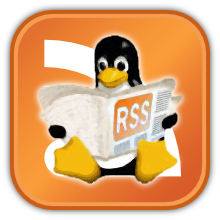 Social bookmarking is a method for Internet users to organize, store, manage and search for bookmarks of resources online. Unlike file sharing, the resources themselves aren't shared, merely bookmarks that reference them.
Social bookmarking is a method for Internet users to organize, store, manage and search for bookmarks of resources online. Unlike file sharing, the resources themselves aren't shared, merely bookmarks that reference them.Descriptions may be added to these bookmarks in the form of metadata, so users may understand the content of the resource without first needing to download it for themselves.
Such descriptions may be free text comments, votes in favour of or against its quality, or tags that collectively or collaboratively become a folksonomy. Folksonomy is also called social tagging, "the process by which many users add metadata in the form of keywords to shared content".
In a social bookmarking system, users save links to web pages that they want to remember and/or share. These bookmarks are usually public, and can be saved privately, shared only with specified people or groups, shared only inside certain networks, or another combination of public and private domains. The allowed people can usually view these bookmarks chronologically, by category or tags, or via a search engine.
Most social bookmark services encourage users to organize their bookmarks with informal tags instead of the traditional browser-based system of folders, although some services feature categories/folders or a combination of folders and tags.
They also enable viewing bookmarks associated with a chosen tag, and include information about the number of users who have bookmarked them. Some social bookmarking services also draw inferences from the relationship of tags to create clusters of tags or bookmarks.
Many social bookmarking services provide web feeds for their lists of bookmarks, including lists organized by tags. This allows subscribers to become aware of new bookmarks as they are saved, shared, and tagged by other users.
As these services have matured and grown more popular, they have added extra features such as ratings and comments on bookmarks, the ability to import and export bookmarks from browsers, emailing of bookmarks, web annotation, and groups or other social network features.
The concept of shared online bookmarks dates back to April 1996 with the launch of itList, the features of which included public and private bookmarks. Within the next three years, online bookmark services became competitive, with venture-backed companies such as Backflip, Blink, Clip2, ClickMarks, HotLinks, and others entering the market. They provided folders for organizing bookmarks, and some services automatically sorted bookmarks into folders (with varying degrees of accuracy).
Blink included browser buttons for saving bookmarks; Backflip enabled users to email their bookmarks to others and displayed "Backflip this page" buttons on partner websites. Lacking viable revenue models, this early generation of social bookmarking companies failed as the dot-com bubble burst — Backflip closed citing "economic woes at the start of the 21st century". In 2005, the founder of Blink said, "I don't think it was that we were 'too early' or that we got killed when the bubble burst. I believe it all came down to product design, and to some very slight differences in approach."
Founded in 2003, Delicious (then called del.icio.us) pioneered tagging and coined the term social bookmarking. In 2004, as Delicious began to take off, Furl and Simpy were released, along with Citeulike and Connotea (sometimes called social citation services) and the related recommendation system Stumbleupon. In 2006, Ma.gnolia, Blue Dot (later renamed to Faves), and Diigo entered the bookmarking field, and Connectbeam included a social bookmarking and tagging service aimed at businesses and enterprises. In 2007, IBM released its Lotus Connections product.
Sites such as Digg, reddit, and Newsvine offer a similar system for organization of social news.
A simple form of shared vocabularies does emerge in social bookmarking systems (folksonomy). Collaborative tagging exhibits a form of complex systems (or self-organizing) dynamics. Although there is no central controlled vocabulary to constrain the actions of individual users, the distributions of tags that describe different resources have been shown to converge over time to stable power law distributions.
Once such stable distributions form, the correlations between different tags can be examined to construct simple folksonomy graphs, which can be efficiently partitioned to obtain a form of community or shared vocabularies. While such vocabularies suffer from some of the informality problems described below, they can be seen as emerging from the decentralized actions of many users, as a form of crowdsourcing.
From the point of view of search data, there are drawbacks to such tag-based systems: no standard set of keywords (i.e., a folksonomy instead of a controlled vocabulary), no standard for the structure of such tags (e.g., singular vs. plural, capitalization), mistagging due to spelling errors, tags that can have more than one meaning, unclear tags due to synonym/antonym confusion, unorthodox and personalized tag schemata from some users, and no mechanism for users to indicate hierarchical relationships between tags (e.g., a site might be labeled as both cheese and cheddar, with no mechanism that might indicate that cheddar is a refinement or sub-class of cheese).
For users, social bookmarking can be useful as a way to access a consolidated set of bookmarks from various computers, organize large numbers of bookmarks, and share bookmarks with contacts. Libraries have found social bookmarking to be useful as an easy way to provide lists of informative links to patrons.

Custom Search
If you liked this article, subscribe to the feed by clicking the image below to keep informed about new contents of the blog:






0 commenti:
Post a Comment